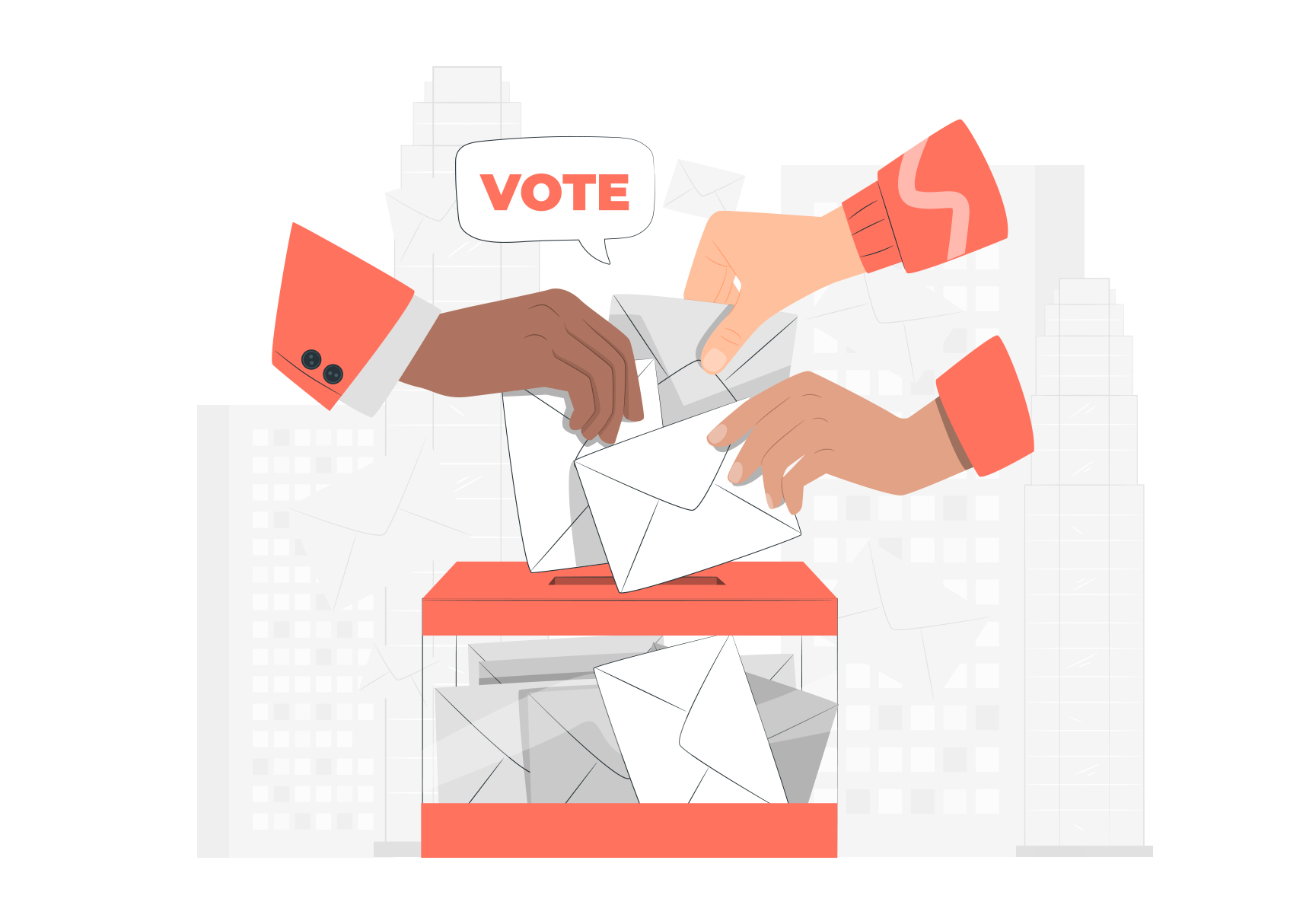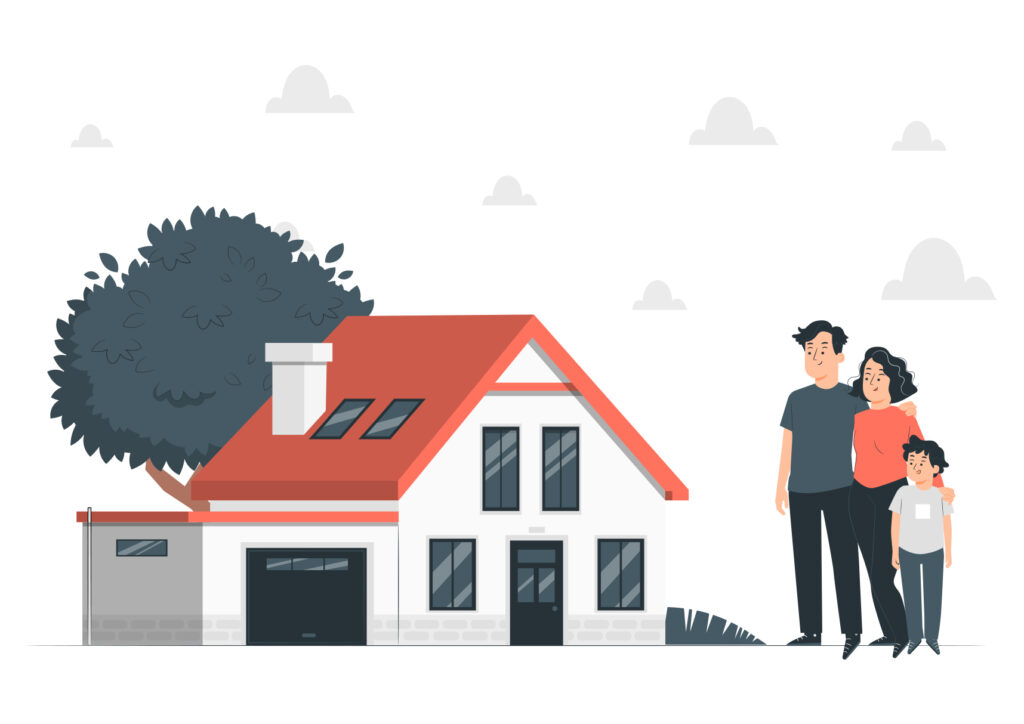The Impact of the Upcoming General Election on UK Property

The UK general election 2024 will be held on 4th July. Housing remains a central topic in party manifestos, reflecting the importance of the property market in the UK’s economic and social landscape.
Key political parties have outlined their policies and priorities, aiming to address the pressing issues voters face.
Here’s what you need to know about the impact of the upcoming general election on UK property demand and prices.
What are the Housing Policies of the UK Parties?
As the general election approaches, housing policies will be key points of debate and consideration for voters.
Here’s where the four main parties stand:
The Conservative Party
The Conservative Party has traditionally focused on increasing home ownership through policies such as extending Help to Buy schemes and promoting Right to Buy initiatives .
Their recent proposals include introducing new first-time buyer discounts and measures to simplify the planning process to accelerate housing construction. The party also aims to build 300,000 homes annually to address the housing shortage and stabilise property prices.
It’s worth noting that the UK Conservative Party has adopted some traditionally Labour policies, like section 24 tax changes, which restrict landlords from deducting mortgage interest costs from their rental income before calculating tax. Introduced to create a level playing field between landlords and homeowners, this policy has increased tax bills for landlords, particularly those with higher leverage.
The Labour Party
The Labour Party’s housing policies are centred around stimulating the private rental sector, social housing and improving rental conditions to meet their target of 300,000 new dwellings per year.
Labour aims to introduce measures to tackle homelessness by ensuring better support and housing availability for vulnerable groups.
It should be noted that in recent years, Labour has moved closer to the centre by focusing on incremental improvements in housing rather than radical reforms. For example, Labour has emphasised building more affordable housing and enhancing tenant rights, which aims to balance the interests of both tenants and landlords without drastically disrupting the property market.
Liberal Democrats
The Liberal Democrats advocate for a comprehensive approach to housing, emphasising the need for more social housing and improved rental standards. They propose building 380,000 homes annually, including 150,000 social dwellings, as part of the broader target .
Their policies also include reforms to the private rental sector, such as introducing longer-term tenancies and rent-to-own schemes aimed at making housing more accessible and affordable for all.
Green Party
The Green Party believes that housing is a fundamental human right and should be accessible and affordable for everyone. The Green Party focuses on sustainable housing solutions, prioritising the environment and energy efficiency in their housing policies. They propose a massive investment in retrofitting existing homes to improve energy efficiency and reduce carbon emissions.
The Green Party aims to build new eco-friendly social housing and implement stronger regulations to ensure all new homes meet high environmental standards, contributing to the fight against climate change while addressing the housing crisis.
How Have Previous UK Elections Impacted the Propety Market?

Historically, the UK property market has been sensitive to the outcomes of general elections, with various administrations enacting policies that have had lasting impacts on housing and property values.
1980s
In the 1980s, the Conservative government under Margaret Thatcher introduced the Right to Buy scheme, allowing council tenants to purchase their homes at a discount. This policy increased homeownership rates and reshaped the social housing landscape but also led to a long-term reduction in the availability of affordable rental housing .
1990s
In the 1997 general election, the Labour Party under Tony Blair came to power, focusing on revitalising urban areas and addressing housing shortages. Their policies included significant investments in social housing and urban regeneration projects, which helped to improve housing conditions and stimulate property market growth in many inner-city areas. However, the rapid increase in property values during this period also contributed to affordability issues, especially in London and the Southeast .
2010 – 2015 General Election
The coalition government of Conservatives and Liberal Democrats focused on austerity measures, impacting public sector investment in housing. House prices initially fell after the 2010 election, which is put down to the fact that no party won outright.
Despite the cutbacks, schemes like Help to Buy were introduced, which spurred new housing developments and helped first-time buyers enter the market.
The Conservative victory in 2015 resulted in further promotion of homeownership through initiatives like the extended Right to Buy and new housing policies aimed at increasing supply. This period also saw rising property prices.
2019 General Election
The Conservative win with a substantial majority led to promises of significant housing construction and reforms to the planning system. These policies aimed to address the housing crisis and make housing more accessible, although the impact has been mixed due to economic uncertainties and the COVID-19 pandemic.
What Impact Will the 2024 UK General Election Have on Property Prices?

Generally speaking, elections in the UK don’t cause volatility in prices or typically change house price trends . Current trends tend to prevail before, during, and after the election.
UK house prices are currently showing signs of recovery after a challenging period. Data from HMRC indicated a fourth consecutive monthly increase in house sales in April, despite recent rises in mortgage rates affecting the market earlier this year .
Election Impact on UK Property Prices
According to research from the house comparison website Compare My Move, one of the significant factors influencing house prices during elections since 2005 has been whether a party secures a majority or if the result is a hung parliament. Their findings indicate that house prices tend to increase by an average of 6.9% more when a party wins with a majority compared to a hung parliament .
Depending on the outcome of the election, we may see UK property experience a bounce in prices.
What Can Landlords, Investors and Homeowners Expect?
The UK general election in July might lead to a resurgence in property transactions and
prices due to heightened political stability, which typically enhances buyer confidence. Past trends have shown an uptick in property sales following elections in 2015, 2017
and 2019, indicating a potential rise in demand after the upcoming election.
Economic conditions in the UK are also expected to improve, with potential interest rate cuts
anticipated, which would make borrowing more affordable and likely increase demand.
Savills predicts a steady recovery in the property market, driven by a gradual release of
pent-up demand as borrowing costs decrease and buyers meet bank stress tests.
Stability in the UK Property Market Regardless of Election Outcome

As the UK general election approaches, it’s becoming evident that neither Labour nor the Conservative Party plans to introduce major regulatory changes that would significantly disrupt the property market. This convergence in policy approach provides a sense of stability and predictability for investors, landlords and homeowners.
The Conservative Party’s policies continue to focus on promoting homeownership and increasing housing supply, while Labour has shifted towards a more centrist position, emphasising pragmatic and sustainable housing solutions.
Both parties’ policies suggest that landlords will not face sudden, disruptive regulatory changes.
The convergence of policies between the parties creates a predictable investment environment, reducing the risk of unforeseen regulatory upheavals. Policies aimed at enhancing the quality and energy efficiency of homes benefit homeowners by increasing the value and livability of their properties.
Short-term vs. Long-term Impact on Property Prices
Whether the Conservative Party or Labour wins the upcoming general election, the property market is likely to experience relative stability with no major regulatory upheavals.
Both parties’ policies focus on incremental improvements and sustainable growth, reducing the likelihood of drastic changes that could negatively impact property investments.
This stable environment allows landlords, investors and homeowners to plan and make informed decisions with greater confidence. In the short term, we could see house prices experience a boost thanks to political stability.
Looking Ahead
In the long term, the UK property market is expected to benefit from sustained housing demand and stable growth. Forecasts by Savills project a 21.6% increase in property prices across the UK by 2028. This growth will be driven by continued investments in housing supply, improving market conditions and supportive policies from both major political parties.
No major upheaval is expected in the property market due to the UK general election in 2024. However, increased market confidence could potentially lead to a bounce in property prices, and the outlook towards 2030 looks promising. To find out more about investing in property in the UK, get in touch with our experts.

